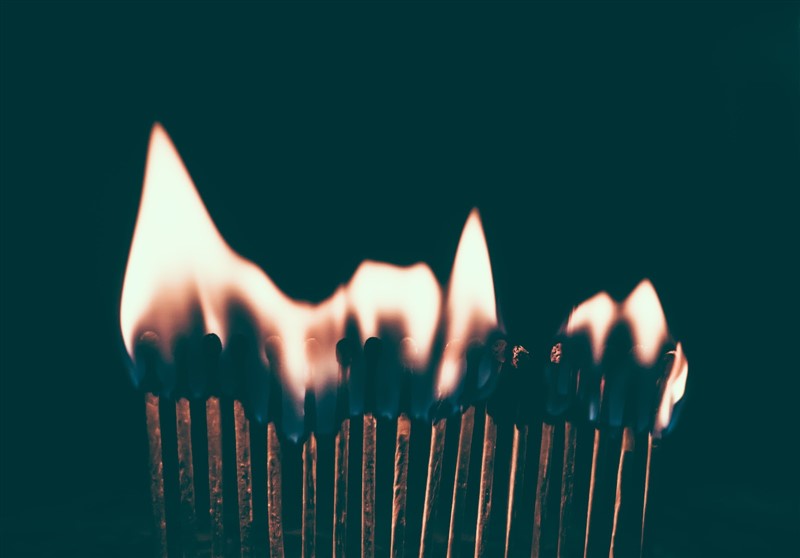Burned or burnt are past participles of the verb burn, where burnt is chiefly British. American English only uses burnt as an adjective.
-
 Alanna Madden
Alanna Madden
-
 April 19, 2021
April 19, 2021
-
 Grammar Tips
Grammar Tips
 April 19, 2021
April 19, 2021
 Grammar Tips
Grammar Tips
Burned or burnt are past participles of the verb burn, where burnt is chiefly British. American English only uses burnt as an adjective.
Burnt and burned are both past tense forms of the verb burn. The main difference between the two words depends on whether you’re using American English or British English.
English speakers in the United States use the word burnt as an adjective to describe something “burned” (past tense of the verb burn). According to Garner’s Modern English Usage, the exception occurs with the adjective phrase “burned out,” where “burnt out” is seldom used (Garner 133).
The word burnt is chiefly found in British English as a past participle or past tense form of the verb burn (133). Burned is still found as a past tense form, but burnt remains the more popular form.

Burned is the original past tense form of the verb burn, but there’s been some English variation over time. For instance, English speakers once used “brent” over “burned” around the 15th century, while several past participles with -ed endings eventually adapted the letter t after the 16th century (such as with spoiled and spoilt).
The practice of using -t endings never fully took-off in the U.S, but it remains a common source of confusion with English grammar. The Word Counter has covered similar nuances in Modern English with words like “spelled vs. spelt,” “learned vs. learnt,” “dreamed vs. dreamt,” and “whilst vs. while.”
According to The New Oxford American Dictionary, the adjective burnt (or burned) describes something as: (1) charred, consumed, damaged, or altered by fire or heat; (2) sugar heated until caramelized; or (3) colored or pigmented in a charred or scorched hue (“Burned” 234).
Sentence examples:
Charred, incinerated, scorched, seared, singed.
Burned (or burnt for British English) is the past participle and past tense form of the verb burn. All verb forms of burn include burn for the present or future tense, burned or burnt for the simple past tense or past participle), and burning the present participle.
The verb burn often means ‘to be on fire’ or ‘to set something on fire,’ but if you’re discussing a candle or anything that creates light, burn means ‘to be alight’ or ‘to glow.’
Sentence examples:
Blazed, combusted, flamed, flared, flickered, glowed, ignited, kindled, lit, radiated, torched.
Did you forget to wear SPF on a sunny day? That’s because the light emitted from the sun can burn your skin, causing redness, painful blistering, and sometimes even genetic mutations. Other times, we can use the verb burn to describe heat injury or conditions that cause fever or hot sensations (such as soreness).
Sentence examples:
Baked, blistered, injured, mutated, reddened, roasted, torched.
Wherever you have heat, you have action. This is why we use “burn” to describe energy conversions for fuel, calories, or anything that produces heat (energy) or when a vehicle drives at high speeds. If you’re discussing consumption, however, the verb means ‘to consume in entirety.’
Sentence examples:
Absorbed, ate, consumed, converted, depleted, devoured, drained, emptied, exhausted, expended, spent, used up, utilized.
Kids these days might not use the verb burn in this way, but it’s helpful to know that it can reference the act of copying digital media to a compact disc or DVD.
Sentence examples:
Copy, distribute, duplicate, imitate, replicate, steal.
Remember how heat is associated with energy? Well, in the case of burn, it can also reference when someone is excited (such as a ‘burning desire’) or “emotionally stirred up with anger” (sort of like the adjective ‘hot-headed’ or the phrase ‘saw red’).
Sentence examples:
Agitated, angered, boiled, enraged, fumed, raged, seethed, sizzled, shook, smoldered, steamed.
The verb burn also references the act of trickery or deception: ‘to cause someone to believe something untrue.’ In most cases, you’ll see the verb in statements like, ‘I’ve been burned before,’ which translates to ‘I’ve been deceived’ or ‘wronged before.’
Likewise, you’ll also find the verb in statements like, “she burned you,” which is similar to the word “roast.” In this case, ‘to burn’ means ‘to insult’ or ‘make fun of someone.’
Sentence examples:
Bamboozled, beguiled, bluffed, conned, deceived, duped, fooled, hoaxed, hoodwinked, insulted, kidded, misinformed, misled, roasted, spoofed, strung along, suckered, swindled, teased, tricked.
The verb burn derives from Middle English burnen and Old English beornan and bærnan. According to The American Heritage Dictionary, beornan means ‘to be on fire’ while bærnan means ‘to set on fire.’

There are times when “burn down the house” has nothing to do with fire and everything to do with someone’s performance of something. In most cases, the phrase means ‘to act self destructively or contradictory to one’s values.’
Sentence example:
The historical phrase “burned at the stake” references a style of public capital punishment for heresy and witchcraft during the Middle Ages.
Sentence example:
If you make enemies more often than you make friends, you’re probably burning your bridges. More specifically, to “burn one’s bridges” is to do something that makes it impossible to amend a mistake or go back to a previous state (think of literally burning a bridge without thinking of how you’ll travel back across).
Sentence example:
The old-fashioned phrase “burn a hole in your pocket” references money and the temptation of spending it too quickly.
Sentence example:
Similarly to burning a hole in your pocket, English speakers use the phrase “to burn” when describing anything in abundance.
Sentence example:
The informal phrase “slow burn” describes the build-up of unpleasant feelings.
Sentence example:
“Burn out” (an adjectival phrase or phrasal verb) describes something as ‘consumed of energy,’ ‘worn down,’ or ‘extinguished,’ and it often references one’s mental or physical energy toward work or anything that impacts their well-being. However, if you’re describing the state of feeling burned out, the correct word is “burnout” (a noun).
Sentence example:
Workaholics know this phrase too well. If someone “burns the candle at both ends,” it means they go to sleep too late and wake up too early.
Sentence example:
Another way of describing burn-out, if you’re “burning the midnight oil,” you’re working late into the night.
Sentence example:
If you “go for the burn” or “feel the burn” during a gym session, it means you can feel the soreness from exercising a particular muscle group. However, there are times when “feeling the burn” means ‘feeling the pressure’ of a stressful situation.
Sentence example:
Don’t get burned on your next essay. Test your understanding of burnt vs. burned with the following multiple-choice questions.
Answers